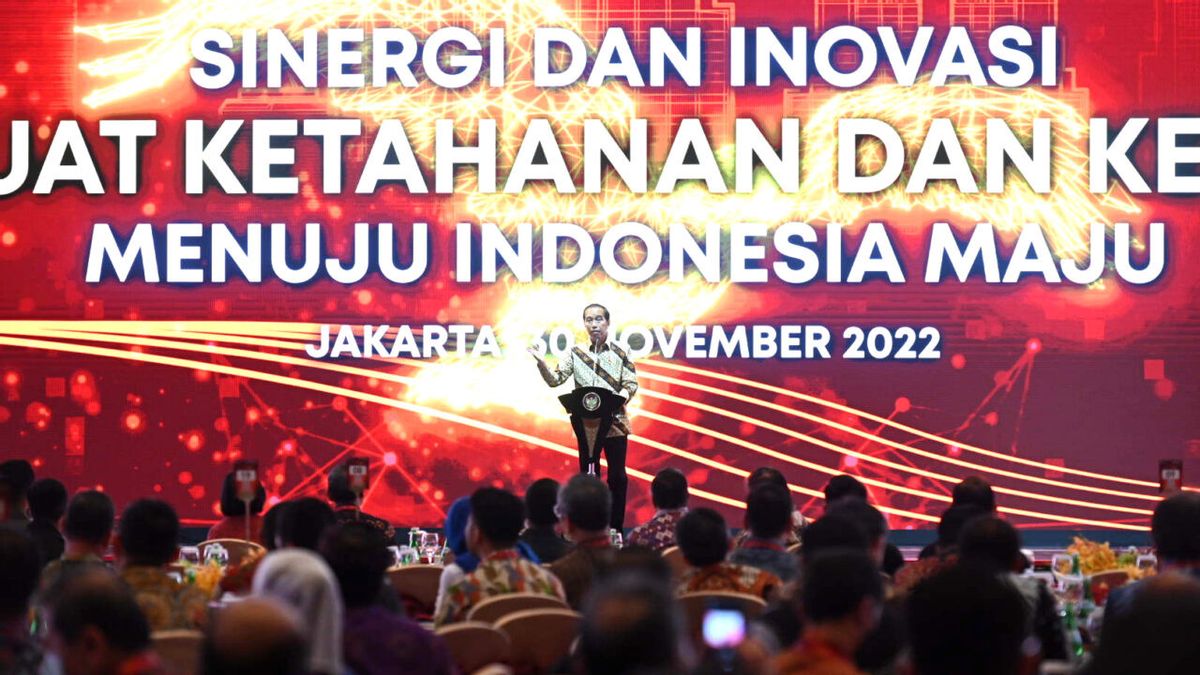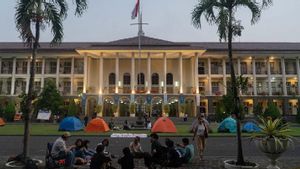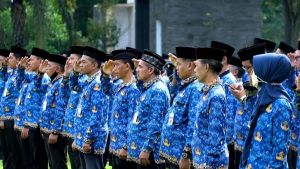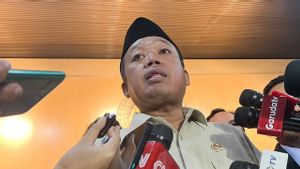Finance Minister Sri Mulyani is optimistic that Indonesia's economic recovery will remain strong amid the weakening of global economic prospects. In the third quarter of 2022, the economy was able to grow 5.72 percent compared to the same period the previous year.
Overall, the 2022 State Budget performs well. Likewise from the external side, the trade balance surplus trend continues until entering its 30th month, precisely in October 2022 a surplus of 5.67 billion US dollars.
"Exports and imports in October 2022 grew positively, supported by rising oil and gas exports. Exports grew 12.30 percent (yoy) and imports grew 17.44 percent (yoy) despite a decline of 3.40 percent from the previous month," said Sri Mulyani in the November 2022 edition of our APBN.
However, various uncertainties and risks due to global pressure still have to be watched out for and mitigated. Currently, according to Sri, global commodity prices are still high and tend to change easily, as well as energy prices and a number of food commodities that are again showing increasing tendencies. Not to mention the inflation rate of each country which tends to increase.
President Joko Widodo (Jokowi), when giving a speech at the 2022 Bank Indonesia Annual Meeting, again reminded to remain careful in facing global conditions in 2023 which are still full of uncertainty and difficult to predict.
"We all have to be optimistic next year but we still have to be careful, we have to be vigilant every time we make politics, the monetary fiscal must always talk, we must always be side by side so that all existing policies are truly beneficial for the people and state," said Jokowi.
The value of Indonesia's exports has indeed increased, but it is not impossible that it will drastically decrease next year due to the impact of the economic situation in a number of Indonesian trading partners, such as China, America, and the European Union.
Problems in China that have not been completed so that their economy also decreased due to the COVID-19 polycylone. Then in the European Union it is the same. The economic weakness is certain, the recession is when, we just have to wait, we just wait but the economic weakness is certain. In America too is the same, the Fed Funds Rate continues to rise. That means, it puts the brakes on growth, meaning that the economy will definitely weaken. Our exports there are also really big, our exports to China are really big, to the European Union is also big. Therefore, be careful, "said Jokowi on November 30, 2022.
The Central Statistics Agency noted that the largest non-oil and gas exports in August 2022 were to China amounting to 6.16 billion US dollars, followed by the United States with 2.59 billion US dollars and India 2.47 billion US dollars, with the contribution of the three reaching 42.84 percent.
Meanwhile, exports to ASEAN and the European Union (27 countries) amounted to US $ 4.77 billion and US $ 2.30 billion, respectively.
Then, related to investment. According to Jokowi, this also has an important role in dealing with global conditions. However, Indonesia will not be able to afford it if it only relies on the state budget, it still needs investors.
That is why investor trust must be maintained. The implementation of structural reform efforts carried out by the government must also be maintained.
We really want to build new ways of working, we want to build a new mindset, that's what gives rise to trust and trust in us. But be careful, we still need polypolicy that we reform, and it needs implementation in the right field," he said.
Moreover, in 2023, the government will deliberately increase the investment target from IDR 1,200 trillion in 2022 to IDR 1,400 trillion in 2023. It is not easy, but Jokowi is optimistic that the equitable development carried out throughout the country will be able to attract investors to invest in Indonesia.
"I entrust it to all ministries, to the governor, to the regent, to the mayor, don't let anything make it difficult, disrupt the flow of capital into investment. Because this is one of the keys to our economic growth," said President Jokowi.
Former Coordinating Minister for Economic Affairs, Kwik Kian Gie did not deny that Indonesia could not only rely on the country's financial capacity for development. There need to be foreign investors and private investors. However, it must be investigated further to what extent the benefits provided by foreign investors for the Indonesian nation.
What is always echoed is job opportunities, taxes, and technology transfers. In terms of job opportunities, the fact is that in the future companies will more and more lead to the use of information technology, artificial intelligence, robots and the like to replace human resources," Kwik Kian Gie said in his writing, Foreign Investments, Who Enjoys 'in Kompas.
He told the story of a bank from the United States that will open branches in Indonesia. This bank later became the first foreign investor in Indonesia. The initial condition is that investors along with their applications must deposit equity capital which is deposited in state-owned banks with an interest rate of around 24 percent per year.
Due to the weak bureaucracy, the operating license has only been issued after two years. As a result, while waiting for an operating permit, the bank has enjoyed 48 percent of its investment.
When it started operating, the popularity of foreign banks was able to beat existing domestic banks first. The bank received demand deposits, deposits, and floods of savings from the Indonesian people. The money collected was then reissued in the form of loans with higher credit interest. The difference is gross profit for a bank called spread.
What happened at that time, said Kwik, was that the largest part of the credit was given to foreign companies compared to the Indonesian nation.
What does that mean? Foreign banks were established with 48 percent equity capital provided by the government in interest form at 24 percent per year. After that, the bank is flooded with demand deposits, savings, and deposits from Indonesian people, the largest part of which is given to foreign companies operating in Indonesia," wrote Kwik.
The same condition, according to Kwik, is still happening in Indonesia today. So, if we invite foreign investment, conditions like this need to be realized and the government needs to employ financial analysts who are really very experts.
Does this mean that we should prohibit foreign investors from investing in Indonesia? Obviously not! " said Kwik.
What must be done is to be good at calculating and negotiating with foreign investors so that the distribution of benefits between them and the Indonesian nation is fair.
"For that, a team that is truly an expert in the company's economic sector is needed, especially proficient in analyzing the balance sheet and earnings/loss reports from every large company, both foreign and private," added Kwik Kian Gie, who is also the former Head of Bappenas.
The English, Chinese, Japanese, Arabic, and French versions are automatically generated by the AI. So there may still be inaccuracies in translating, please always see Indonesian as our main language. (system supported by DigitalSiber.id)








